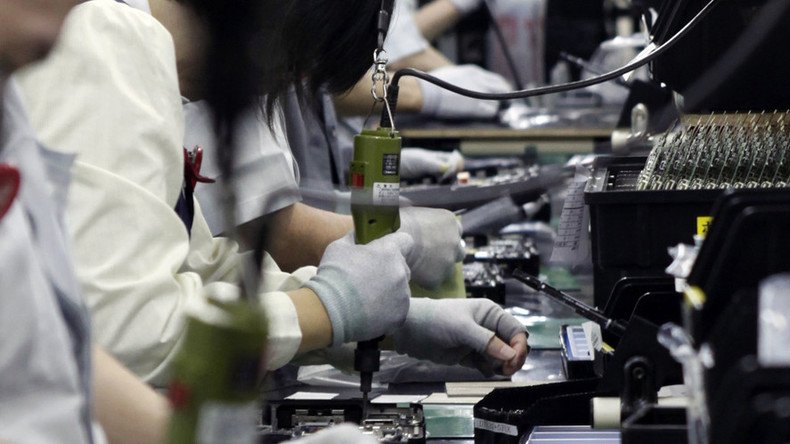S. Korean court says Samsung worker’s ovarian cancer caused by exposure to chip chemicals

Long-term exposure to chemicals used in the production of chips for Samsung significantly contributed to one of their factory workers developing terminal cancer, a South Korean court said in a first-of-a-kind ruling.
Lee Eun-joo struggled with the disease for more than a decade and died after working for the company for six years.
On Friday, the Seoul Administrative Court found a “significant causal relationship” between the sickness and the chemicals found at Samsung’s chip factories. The court ruled that it did not matter that the concentration of the harmful chemicals was low, as Lee Eun-joo had been exposed to them for a long time.
Court: Chemicals caused Samsung chip worker's #ovarian#cancerhttps://t.co/yBMvnyLoFl via @CTVNewspic.twitter.com/JWcyMxhy8r
— Survivor Network CA (@survivornetca) January 29, 2016Lee began her career at the Samsung factory in 1993 at the age of 17 and died in 2012.
The court said that the glues she used for attaching a silicon wafer to a lead frame contained harmful substances, such as formaldehyde and phenol. According to the court’s safety documents, phenol can promote tumors and formaldehyde is a known carcinogen. The court also slammed night shifts and the factory’s ventilation system, according to AP.
The court said that a government agency should compensate Lee’s family. It urged the agency to be less strict when deciding whether the family is eligible for compensation, as it is still unclear what exactly caused the disease.
In South Korea, companies pay levies to the government, which it then uses to fund compensation for employees suffering from workplace diseases.
Samsung has long been at the center of attention when it comes to cancer-related issues.
On January 12, Samsung signed a deal pledging to improve health and safety conditions at all of its facilities. The agreement was signed between the South Korean electronics company and two groups representing victims and their families.
If #Samsung calls Tuesday deal "result of #mediation," that's a lie, says #Banolim, citing failure to abide by recommendation given in 2015
— Jihyoung Son(孫知亨) (@consnow) January 16, 2016An independent committee was to be established to carry out “a thorough inspection of Samsung’s facilities and release reports on any areas for improvement,” the company said.
“In the big picture, it is correct to say everything has now been settled,” a Samsung official said. “But Samsung remains open to talks as the agreements are put into practice.”
Samsung issued an apology to victims of cancer and their families in May of 2014 and organized a special compensation fund last year. It stressed, however, that this did not mean that the company acknowledged a link between the disease and the chemicals used at its chip factories.
“We feel regret that a solution for this delicate matter has not been found in a timely manner, and we would like to use this opportunity to express our sincerest apology to the affected people,” Samsung’s vice-chairman Kwon Oh-hyun said.
Banolim, one of the groups representing the victims, slammed Samsung, saying that the apology and the fund had never been fully approved by the victims’ families.
#Banolim#SHARPS lawyer #임자운 explains how Samsung's claim of working w/ "150 victims" is misleading @AAJAAsiapic.twitter.com/WZAE41AGYa
— Eunji Kim (@eunjiiikim) January 16, 2016“Samsung has refused to discuss the issues of apology and compensation with us,” Kwon Young-Eun, a member of the group, said. “We will continue to demand Samsung address these issues properly.”
Samsung argues that it has provided compensation to more than 100 of 150 fund applicants.
More than 200 current or former Samsung employees are suffering from leukemia, Banolim said.












